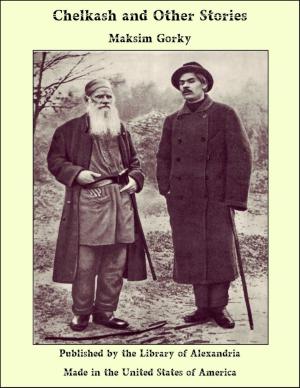Ronald Morton, or the Fire Ships: A Story of the Last Naval War
Nonfiction, Religion & Spirituality, New Age, History, Fiction & Literature| Author: | William Henry Giles Kingston | ISBN: | 9781465596239 |
| Publisher: | Library of Alexandria | Publication: | March 8, 2015 |
| Imprint: | Language: | English |
| Author: | William Henry Giles Kingston |
| ISBN: | 9781465596239 |
| Publisher: | Library of Alexandria |
| Publication: | March 8, 2015 |
| Imprint: | |
| Language: | English |
“Land! land on the larboard bow!” The cry was uttered in a foreign tongue from the masthead of a corvette of twenty guns, a beautiful long, low, flush-decked craft with dark hull, taunt raking masts, and square yards, which, under all the sails she could carry with a southerly breeze right aft, was gliding rapidly over the now smooth surface of the northern ocean. The haughty flag of old Spain, and the language spoken on board, showed that she belonged to that nation. The crew sat clustered about on the forecastle with their arms folded in a listless, inactive way—some asleep—others smoking cigarillos or playing games of chance between the guns, while a few were disputing on some trivial points with a vehemence which proved the fiery tempers hidden under those calm exteriors. The officers lolled against the bulwarks, sat on the guns, or paced slowly backwards and forwards; but rather more etiquette was kept up on the quarter deck than appeared to be the case among the men forward. The captain walked backwards and forwards with his first lieutenant on the starboard side; they crossed occasionally, and lifted their hands to their eyes to watch the land just sighted as the ship approached and glided by it at the distance of two or three miles. The captain’s appearance was in his favour. He was tall and graceful, with the clear olive-complexion, the pointed beard, the thin moustache, and the large pensive eyes, so frequently seen in portraits of high-born Spaniards. Still, though his features were handsome and very intelligent, there was an expression in them not altogether satisfactory. His companion was a short, thick-set man, dark and bearded, with a daring look in his countenance and a firmness in his month which might raise a suspicion that in cases of emergency he would be likely to take the command in the place of his superior.
“Land! land on the larboard bow!” The cry was uttered in a foreign tongue from the masthead of a corvette of twenty guns, a beautiful long, low, flush-decked craft with dark hull, taunt raking masts, and square yards, which, under all the sails she could carry with a southerly breeze right aft, was gliding rapidly over the now smooth surface of the northern ocean. The haughty flag of old Spain, and the language spoken on board, showed that she belonged to that nation. The crew sat clustered about on the forecastle with their arms folded in a listless, inactive way—some asleep—others smoking cigarillos or playing games of chance between the guns, while a few were disputing on some trivial points with a vehemence which proved the fiery tempers hidden under those calm exteriors. The officers lolled against the bulwarks, sat on the guns, or paced slowly backwards and forwards; but rather more etiquette was kept up on the quarter deck than appeared to be the case among the men forward. The captain walked backwards and forwards with his first lieutenant on the starboard side; they crossed occasionally, and lifted their hands to their eyes to watch the land just sighted as the ship approached and glided by it at the distance of two or three miles. The captain’s appearance was in his favour. He was tall and graceful, with the clear olive-complexion, the pointed beard, the thin moustache, and the large pensive eyes, so frequently seen in portraits of high-born Spaniards. Still, though his features were handsome and very intelligent, there was an expression in them not altogether satisfactory. His companion was a short, thick-set man, dark and bearded, with a daring look in his countenance and a firmness in his month which might raise a suspicion that in cases of emergency he would be likely to take the command in the place of his superior.















